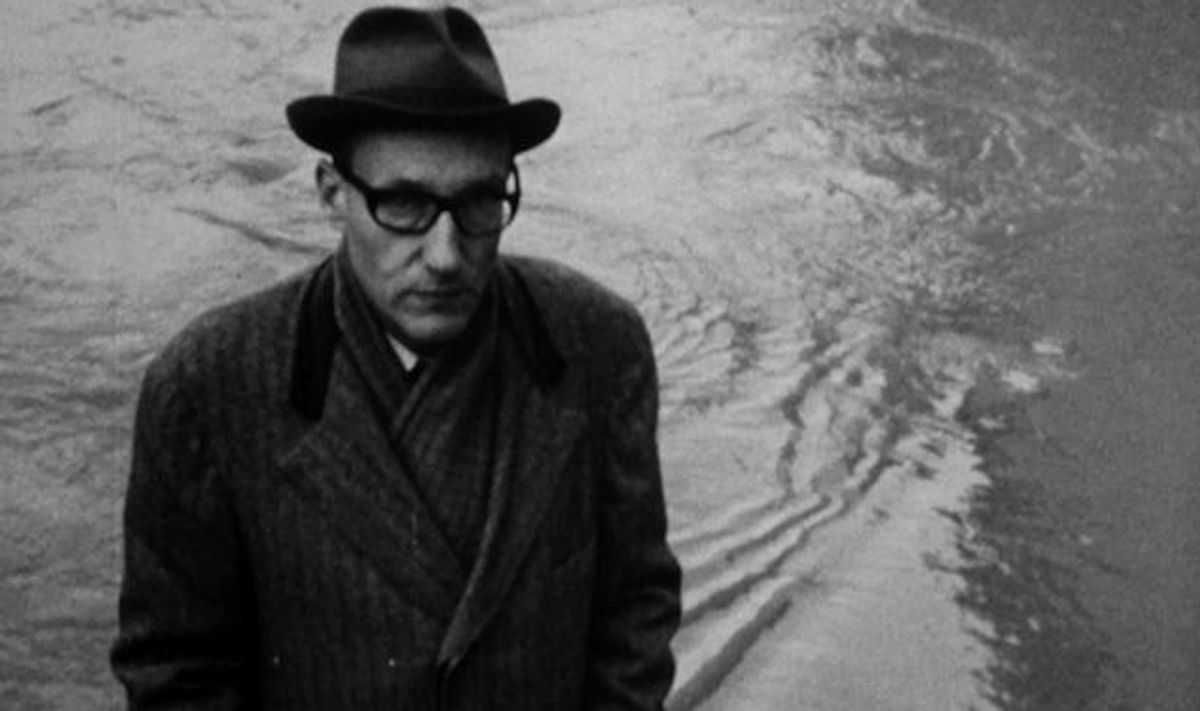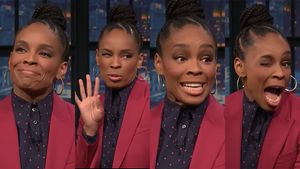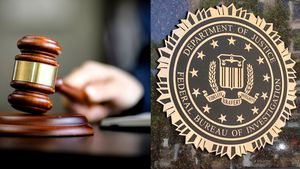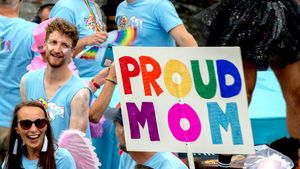Aaron Brookner can still recall the enormous specter of William Burroughs looming over him as he hunkered down to sleep at his grandparents' home in Miami. "They had a gigantic Burroughs: The Movie marquee poster in the guest room, like part of the family photos on the wall," he recalls. "I didn't know who Burroughs was, but it was, OK, that's Howard's movie."
Considered lost for 25 years, following the director's untimely death from AIDS-related complications in 1989, a restored version of "Howard's movie" will shortly enjoy a weeklong run at New York's Anthology Film Archives and is being screened as part of the New York Film Festival. A DVD will be released in 2015 through the Criterion Collection. For Brookner, who clung to a VHS copy of the movie as a child, watching it hundreds of times, the recovery of Burroughs: The Movie is a testimonial to an artist who died too young.
As a kid he got to sit on his uncle's lap to watch him direct Madonna, Matt Damon, and Randy Quaid--three of the leads from Howard Brookner's final move, Bloodhounds of Broadway, released after his death.
Although he was only 7 at the time of his uncle's death, Brookner describes their relationship as one of kindred spirits. "I was at St. Vincent's hospital; I was in the AIDS ward. I was with him in the last few months of his life," he says. "I didn't know anything about AIDS, or that he was gay, of course. My father's way of explaining that was taking me to see Philadelphia, when I was about 12. At the end of the movie, I was bawling."
It's doubtful that Burroughs: The Movie would have resurfaced if not for Brookner, who tracked down a 16mm copy to the Museum of Modern Art, a gift of his uncle's long-time partner, the writer Brad Gooch, who had forgotten that it was there (coincidentally, Gooch's own memoir of the era, including his long relationship with Brookner, is to be published in April). "It's an incredibly intimate film," Brookner says . "It's so complicated and beautifully put together, and it just flows. But you can keep finding new things, like with Burroughs himself. There's always something interesting there, around the corner, always something to make you think differently."

A still from 'Burroughs: The Movie'
Among the most striking moments (and there are many) in the 90-minute documentary is a scene in which the writer speaks extemporaneously about gay liberation. "A gay state, that's what I'm aiming for," he says. "I want us to be as tough as the Israelis. Anybody fucks around with a gay any place in the world, we gotta be there. We're a minority, why the hell don't we have a right to protect ourselves? We have to build up an international organization, with false passports, guns on arrival, the whole lot, the whole terrorist lot... If they oppose the gay state, we gotta find 'em, track 'em down, and kill 'em. Why not?"
William Burroughs died in 1997, at the age of 83, when the focus of LGBT activism was beginning to shift from fighting AIDS to fighting for marriage equality. His fantasy of a militarized gay state aside, it's hard to imagine a man so determinedly an outsider as Burroughs finding pleasure in our newfound freedoms. This is a man whose work has come to represent the antithesis of bourgeois convention, whose cryptic, raggedy writing style owes its distinctiveness to the fug of heroin, the haze of opium.
Yet the achievement of Burroughs: The Movie is to show the writer's contradictions as well as his consistencies, stripping away the easy cliches for a tenderhearted portrait of an enigmatic man. "His morals are probably Boy Scout morals," says the screenwriter and essayist Terry Southern in the documentary. Those Boy Scout morals are never more apparent than in his often-tortured relationship to his homosexuality. Had he been able to come to terms with being gay earlier, as his great friend and one-time lover Alan Ginsberg had, it's unlikely he'd have married Joan Vollmer, who he killed in New Mexico in 1951 during a drunken game of "William Tell."
Burroughs would subsequently trace his explosive literary output to Vollmer's death--an action directed by an "Ugly Spirit" that only writing could exorcise. In Brookner's movie, Allen Ginsberg seems to suggest that Vollmer was literally asking for it, a death wish that Burroughs unconsciously answered. It is not Ginsberg's finest moment, but his loyalty to Burroughs was absolute, rationalizing and sanctifying him throughout his life. In one of the movie's loveliest scenes the two men stand atop a Manhattan rooftop recalling their university days playing dress-up, with Burroughs in drag as an "Edith Sitwell character," and Ginsberg as "the well-groomed Hungarian." As with another scene, in which Burroughs revisits his childhood home in St. Louis, it helps humanize a complicated man.
For Aaron Brookner, the movie is not only a great window to Burroughs, but a window to his uncle. AIDS may have deprived us of a great career in cinema, but Aaron Brookner is determined not to let it deprive us of the body of work he left behind. Next up? A restoration of Howard Brookner's second documentary, on the life and work of gay theater director Robert Wilson.
Burroughs: The Movie screens Oct. 9 as part of the New York Film Festival at Film Society of Lincoln Center, NYC. It's in select cinemas beginning Nov. 15.


























































































